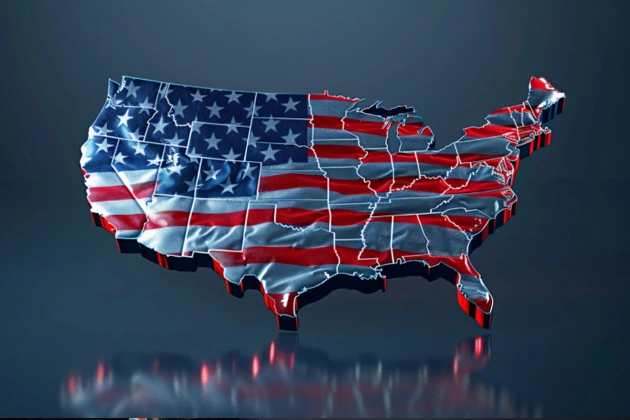When entrepreneurs plan their new companies, they spend months on business plans and product ideas. But many of them forget about something that can make or break their success: where they actually set up the business. States have wildly different tax rules, licensing requirements, and labor laws. In 2025, these differences matter more than ever because states are fighting hard to win over new companies.
Tax-Friendly States Win Big
Colorado has positioned itself as one of the best places to start a business this year. The state mixes reasonable taxes with skilled workers and steady economic growth. What makes Colorado special is how it handles new industries with clear rules that actually help businesses grow.
Look at what happened with sports betting. Colorado said yes to it in 2020 and shot up to become one of the biggest markets in the country. Last year, sports betting operators brought in $475 million in revenue, with nearly all of that money coming through mobile apps rather than physical locations. While Colorado online casinos aren’t licensed locally yet and players use reputable international sites instead, the sports betting boom proves the state knows how to roll out new opportunities without drowning businesses in paperwork.
Wyoming, South Dakota, and Alaska remain the champions when it comes to taxes. None of these states collect personal income tax, and Alaska doesn’t even have a statewide sales tax. South Dakota has become particularly popular with online businesses and holding companies because the tax code stays simple and the state doesn’t interfere with business operations.
Texas has earned national attention for completely redesigning its approach to business. The state created special courts just for business disputes, reduced liability risks for company executives, and pushed back against federal rules on ESG investing. Major companies like Tesla and Oracle moved their operations to Texas, but smaller startups get the same advantages: lower costs and faster permit approvals.
The Middle Ground and Premium Markets
Utah, North Carolina, and Indiana have found a middle path that works well for many businesses. These states cost more than the cheapest options, but they provide solid infrastructure and reasonable regulations. Utah has built up its tech sector while making it easy to register a business online. North Carolina produces skilled workers and keeps housing costs manageable.
Idaho and North Dakota go after young companies by keeping everything straightforward and inexpensive. Sure, they don’t have the huge customer bases like other states, but they make up for it by moving fast and staying predictable.
California, New York, and New Jersey throw regulations at you from every direction and tax you heavily for the privilege. Labor laws tie your hands, environmental rules reach into everything, and consumer protection rules stack up like pancakes. The trade-off is access to massive markets and incredibly talented workers. If you’re in finance, healthcare, or media, the headaches might be worth it.
Regulatory Shifts Impact Business Costs
State regulations shift constantly, and smart business owners track these changes carefully. Colorado recently tightened rules around gambling promotions by reducing tax breaks for companies that offer “free bets.” The state wants to collect more revenue from online platforms. Small operators should pay attention to this trend because it shows how quickly things can change, even in states that generally support business.
Washington state also made big changes this year by raising its minimum wage to one of the highest in the country and adding new overtime rules that mirror California’s approach. Companies with hourly workers will face steeper labor costs. But tech companies and professional services still see value in Washington’s skilled workforce and business infrastructure.
Industry Type Determines Best Location
Your industry and business model determine where you should land. Wyoming or Alaska make sense for remote operations or financial companies that don’t need to sit next to their customers. Texas and Florida work for companies that want to grow fast and hire people all over the map. Utah and North Carolina appeal to tech companies that plan to stick around and build real teams.
Colorado appeals to entrepreneurs who want clear regulations without paying the high costs you find on the coasts. Nevada attracts gaming companies and entertainment businesses with its established regulatory framework and tourist traffic. Delaware draws holding companies and financial firms with its business-friendly courts and corporate law advantages. Montana and Wyoming work well for resource-based companies that need access to land and want minimal government interference.
Smart Founders Track State Policies
State regulations have more impact on business success than ever before. Everything from licensing fees to employment laws to digital gaming rights can determine whether your company makes money and grows. There’s no single solution that works for everyone. A solo consultant has completely different needs from a company that develops mobile casino games.
Some clear patterns have emerged. Certain states reward speed and keep regulations simple. Others demand more compliance but provide access to capital, large markets, and skilled workers. As more entrepreneurs start businesses in software, finance, and digital entertainment, some states show how flexible policies can support new business ideas while keeping costs reasonable. The details count more than they used to, and the founders who do their homework end up with better opportunities.










